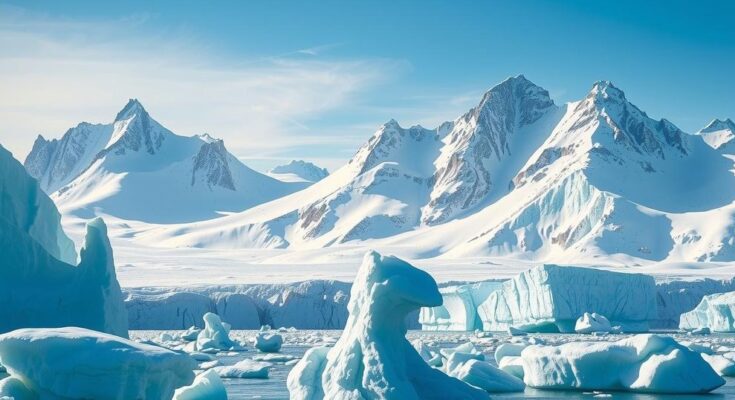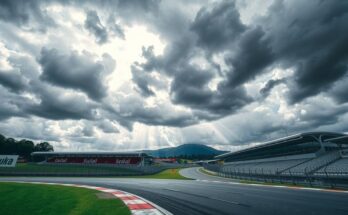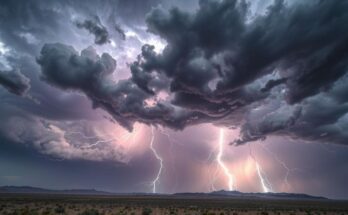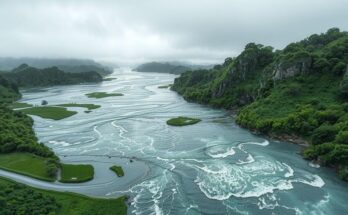Research conducted at South Africa’s Sanae IV base in Antarctica focuses on climate change and its global implications. Approximately 30 countries collaborate in this isolated environment, revealing significant findings like the ozone hole and insights from ice cores. Conducting research poses challenges due to extreme conditions, yet the insights gained are crucial for understanding climate change and preparing for its impacts.
In mid-March 2025, a controversy emerged from South Africa’s Sanae IV base in Antarctica, where a researcher accused a team member of violence. To understand the importance of research in this isolated environment, The Conversation Africa consulted geomorphologist David William Hedding, who has prior experience in Antarctic studies.
Research in Antarctica primarily focuses on climate change, as the continent serves as an essential indicator of shifts in global climate cycles. Its unique and fragile ecosystem is highly sensitive to changes, allowing scientists to investigate the natural systems’ processes in a relatively untouched environment. Moreover, Antarctica’s geographic location makes it suitable for studies, such as space weather, which can influence communication, technology, and human health.
Approximately 30 countries operate research stations in Antarctica, providing a collaborative atmosphere for scientists facing logistical challenges. South Africa’s SANAE IV base typically accommodates 10 to 12 researchers and remains situated 220 kilometers inland on a nunatak in Western Dronning Maud Land. Researchers stay for roughly 15 months, enduring cold and dark winters while conducting experiments.
Some significant discoveries in Antarctic research include the 1985 identification of the ozone hole by British Antarctic Survey scientists, which subsequently led to the Montreal Protocol aimed at reducing harmful chlorofluorocarbons. Additionally, studies utilizing ice cores have revealed invaluable data about past climates, helping predict future responses to climate change over the last 1.2 million years.
Conducting research in Antarctica presents various challenges, including remoteness, extreme cold, and constant daylight during summer. Many research sites are difficult to access, requiring collaboration and extensive planning. For instance, geologists from the University of Johannesburg often travel via snowmobiles to collect samples in harsh conditions. Most research occurs during the austral summer months, with limited timeframes affected by sea ice extent.
Scientific endeavors in Antarctica are vital due to the continent’s influence on global systems. Climate change-induced ice melting could lead to significant sea-level rises and disrupt ocean currents, highlighting the need for an improved understanding of the interactions between terrestrial and oceanic systems. Investigating these changes is essential for building societal resilience to the impacts of climate change.
In summation, scientific research in Antarctica plays a pivotal role in understanding climate change and its global implications. Focused on climate processes, space weather, and historical atmospheric conditions, researchers are uncovering vital data that could shape future responses. Collaborative efforts amid the harsh realities of the Antarctic environment are crucial for studying these critical phenomena, ultimately contributing to societal adaptations against climate effects.
Original Source: allafrica.com




